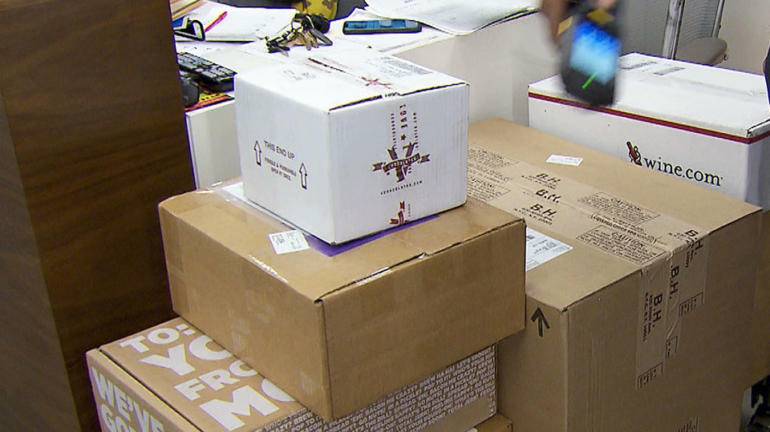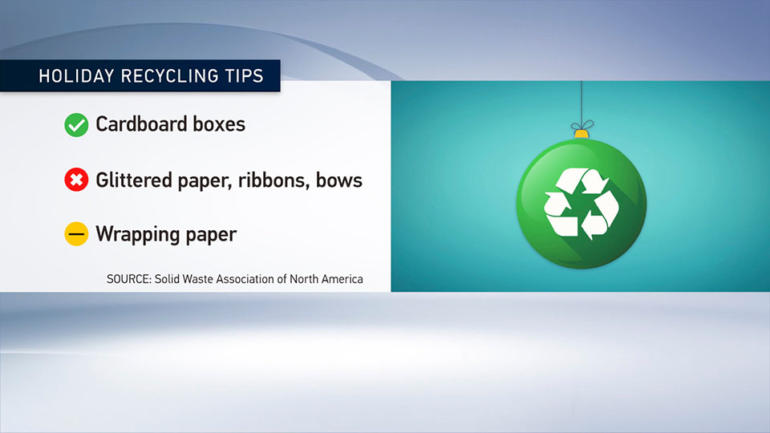Tis the season to shop, ship, and open gifts. But this time, it’s going to be harder to recycle all that holiday wrapping paper and packaging. The reason – China has stopped buying certain kinds of scrap, and more changes are on the way in 2019.
CGTN’s Jessica Stone reports.
If your office looks like most, during the holidays, it’s a banquet of boxes – just waiting to be opened on Christmas morning. But all that cardboard, paper and plastic is no gift to the person who hauls it away — if it’s mixed with leftover food or drink.
As of 2018, China – the world’s largest buyer of scrap- only takes material for recycle with just one half a percent contamination. They’re taking less, raising costs for those in the trash business.
“And {China is} they’ve signaled that they will only continue to increase that scrutiny as time goes on, so they are much less interested in importing our recycling, and our associated trash with our recycling, from more of an environmental impact,” Frank Chimera, Republic Services senior manager said.
While a few jurisdictions have stopped accepting curbside recycling altogether, most U.S. waste recovery facilities are stepping up their sorting to cut down on contaminants. According to the Solid Waste Association of North America, in the next three years, more than a dozen recycling facilities will also open in the U.S. But next year brings additional restrictions.
On New Year’s Eve, China will tighten its current ban on solid waste imports and will stop buying industrial metal, plastic and glass scrap.
“That will have less of an effect on consumers, but sometime in 2019, China is expected to ban all recyclables and scrap, regardless of source and that will have an impact on recycling not just in the U.S., but Western Europe and other places that are dependent on export to China,” said David Biderman, Executive Director, Solid Waste Association of North America.
So with all the changes in China, the best way to make sure your holiday and everyday trash gets recycled is this. Make sure each type of material — glass, paper, plastic — is clean, dry and loose.
That last one is critical.
“Most importantly, please don’t bag the material. They get caught on screens in the recycling facility, they force recyclers to shut down the machines for an hour a day to get the plastic off the screens. It’s another expense that makes it difficult to offer recycling,” said Biderman. So, if the gift of a healthy planet is on your wish-list this holiday season, don’t forget to consider how you clean up from all the festivities.
 CGTN America
CGTN America


